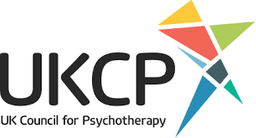An outdated perception of ADHD that stems from early understandings of the condition continues to shape public opinion, with the main focus being on hyperactive males in the classroom. The whole picture of ADHD manifestations is not fully portrayed by this constrained portrayal. The stereotype of an enthusiastic, extroverted person with ADHD frequently reflects only a small portion of how the disorder can express itself in everyday situations, leaving out the inattentive, reserved introverts.
Previous research on ADHD has mostly involved children, with a particular emphasis on boys. Due to this biased research, we still don’t fully understand how ADHD manifests in different age groups, demographics, and especially in women.
Although it is a defining feature of ADHD, hyperactivity is not the sole manifestation. Less evident signs including internal restlessness, difficulty focusing, and impulsivity can occur in both males and females. Expanding our knowledge of ADHD to include its various manifestations in different age groups and genders is crucial.
Understanding ADHD in Women
- While boys might also appear inattentive, girls can also exhibit hyperactivity.
- Rather than being recognised as a potential expression of ADHD, talkativeness in girls is often connected with feminine qualities, leading to labels such as “chatty Cathy.” However, men who exhibit restless behaviour are very quickly diagnosed with ADHD.
- The stereotype of forgetful or disorganised women with ADHD oversimplifies the cognitive difficulties that arise from the disorder and further marginalises women in general.
- Women are stereotyped as emotional. It’s critical to comprehend how emotional difficulties and ADHD are related because emotional regulation might be impacted by ADHD.
A person starts attempting to establish new routines to promote their health after they are on medication. Being human, they probably have trouble settling into a new habit. They may rapidly give up on the new strategy when their old negative self-talk (such as “it’s because I’m lazy”) remains. My affordable ADHD counselling in Hertfordshire will show how negative self-talk is getting in the way and assist my client in constructing a more balanced course of action, even though medicine may help clients make and follow a plan.
Upon receiving a new diagnosis of ADHD, a person could feel compelled to share their diagnosis and challenges with close ones. When they muster the confidence to share their experience, they may encounter silence and indifference. The self-talk that says things like “you’re not good enough” or “no one cares about you” usually appears right away. Affordable ADHD counselling in Hertfordshire is going to help reframe the dependency on other people’s opinions of oneself for approval, even while medicine may help organise the ideas and intention to speak about the diagnosis.
An ADHD diagnosis that is new might be confusing and complex. Reach out anytime you’re ready.


 by web@dmin
by web@dmin 27 June 2024
27 June 2024

